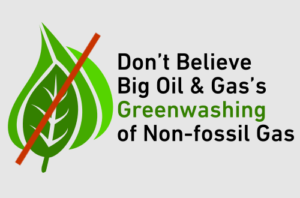
The fossil fuel industry has been trying hard to promote gas in many forms as “sustainable” or “green”. There are different ways of producing gas that the industry calls renewable, but this term is misleading. Is it sustainable or green to create dependence on waste, cut trees for biomass, and produce methane with the same chemical structure and characteristics as fossil gas?
Why does the fossil fuel industry want to promote the idea of non-fossil gas? As big infrastructure operators generally push for gas use in Europe, using the magic idea of renewable gas is very handy for them to justify decades of infrastructure buildout that serves both fossil and non-fossil gas. The question is: Does it add up? Will these gases significantly reduce CO2 emissions? Where does the feedstock for these gases come from? Does all this make economic sense?
Here are a few of the issues that need to be taken into account when we’re talking about non-fossil “renewable” gas.
Biogas: The Biofuels Deja-vu
Since their introduction, biofuels have earned a lot of criticism for their role in land grabs, displacing food crops for energy, loss of biodiversity, climate change and pollution. While biofuels – liquid fuels based on biomass – turned out to be a very bad idea, something similar seems to have been re-introduced through the back door: biogas. Biogas is a mix of gases generated through the breakdown of organic matter through anaerobic digestion (digestion in the absence of oxygen).
Feedstock for biogas, for example, can be waste, sewage sludge, energy crops, manure or biomass. Using waste to generate energy can make sense in a few limited cases but we should not lock ourselves into a society dependent on producing enough waste that we can heat our homes or cook. Also, using manure will turn into an issue sooner rather than later, quite apart from the fact that manure does not automatically create methane and to a big extent it can be avoided. Biogas production is no justification for big agribusiness. But in Europe, big factory farms may only get built because they commit to produce biogas.



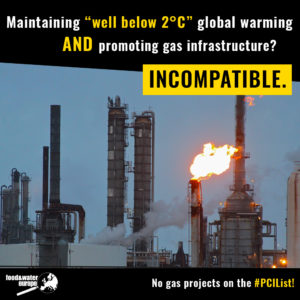 By
By 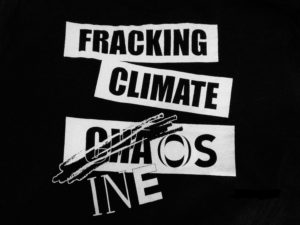
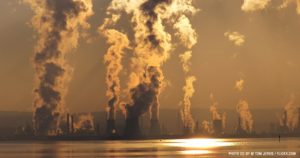 The secretive chemical company Ineos has been leading the charge to bring the environmentally destructive method of drilling, known as fracking, to the United Kingdom (UK) and mainland Europe. The company’s goal is to produce cheap gas for its own plastics and petrochemical production. But the company is running into massive public opposition.
The secretive chemical company Ineos has been leading the charge to bring the environmentally destructive method of drilling, known as fracking, to the United Kingdom (UK) and mainland Europe. The company’s goal is to produce cheap gas for its own plastics and petrochemical production. But the company is running into massive public opposition. In
In 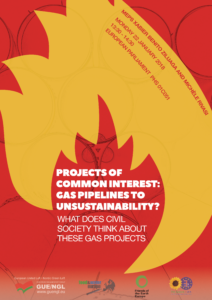 If you are around Brussels this month, you are more than welcome to participate in our event on 22 January, bringing the voices of anti-gas infrastructure activists to the European Parliament. The event will take place from 13:30-14:30 in room PHS 01C051.
If you are around Brussels this month, you are more than welcome to participate in our event on 22 January, bringing the voices of anti-gas infrastructure activists to the European Parliament. The event will take place from 13:30-14:30 in room PHS 01C051.